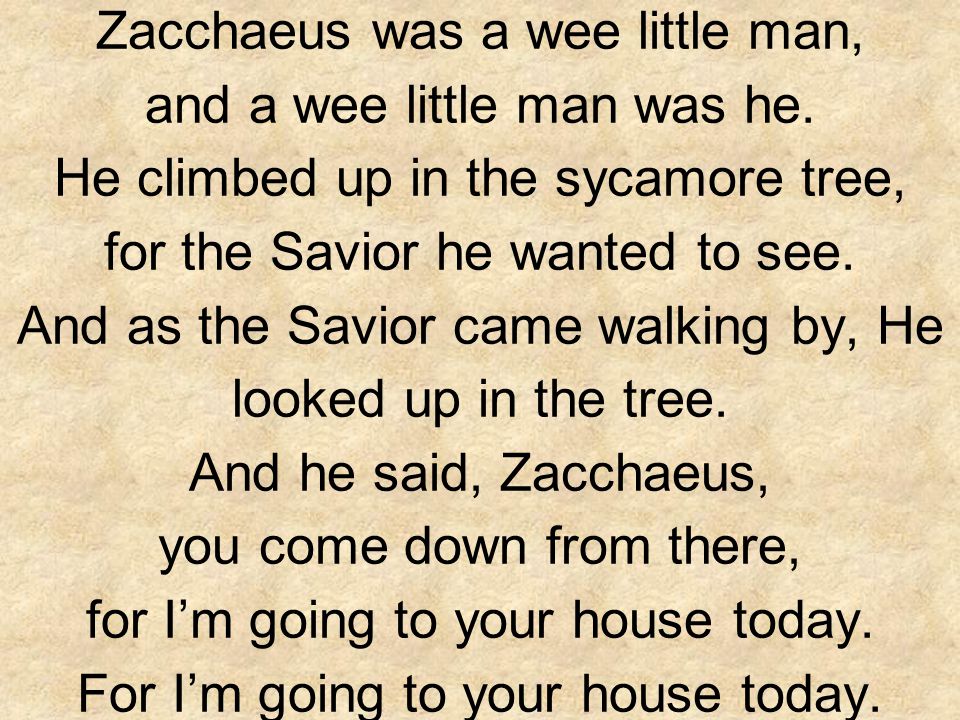
Zacchaeus was a wee little man, and a wee little man was he. He climbed up in the sycamore tree, for the Savior he wanted to see. And as the Savior came walking by, He looked up in the tree. And he said, Zacchaeus, you come down from there, for I’m going to your house today. For I’m going to your house today.